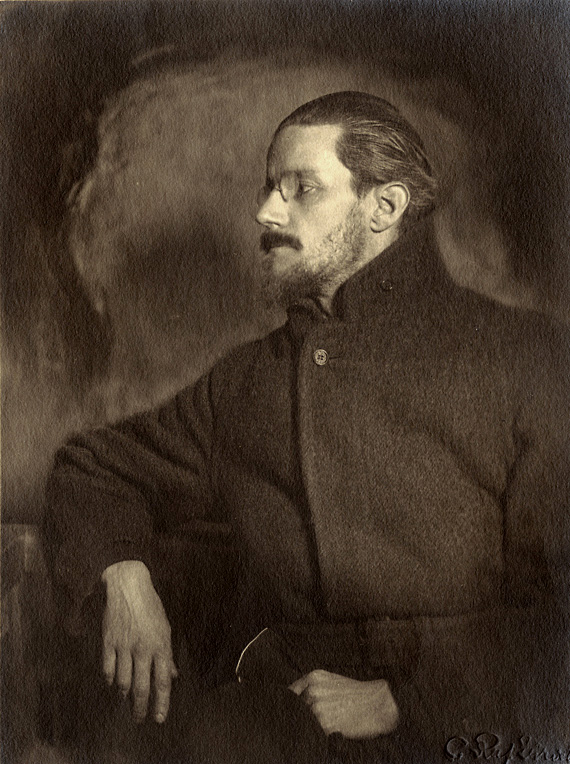“No one would think he'd make such a beautiful corpse.”
Source: Dubliners
James Augustine Aloysius Joyce was an Irish novelist, short story writer, poet, teacher, and literary critic. He contributed to the modernist avant-garde and is regarded as one of the most influential and important authors of the 20th century. Joyce is best known for Ulysses , a landmark work in which the episodes of Homer's Odyssey are paralleled in a variety of literary styles, most famously stream of consciousness. Other well-known works are the short-story collection Dubliners , and the novels A Portrait of the Artist as a Young Man and Finnegans Wake . His other writings include three books of poetry, a play, his published letters and occasional journalism.
Joyce was born in Dublin into a middle-class family. A brilliant student, he briefly attended the Christian Brothers-run O'Connell School before excelling at the Jesuit schools Clongowes and Belvedere, despite the chaotic family life imposed by his father's unpredictable finances. He went on to attend University College Dublin.
In 1904, in his early twenties, Joyce emigrated to continental Europe with his partner Nora Barnacle. They lived in Trieste, Paris, and Zürich. Although most of his adult life was spent abroad, Joyce's fictional universe centres on Dublin and is populated largely by characters who closely resemble family members, enemies and friends from his time there. Ulysses in particular is set with precision in the streets and alleyways of the city. Shortly after the publication of Ulysses, he elucidated this preoccupation somewhat, saying, "For myself, I always write about Dublin, because if I can get to the heart of Dublin I can get to the heart of all the cities of the world. In the particular is contained the universal."
Wikipedia

“No one would think he'd make such a beautiful corpse.”
Source: Dubliners
“I'll tickle his catastrophe.”
Source: Ulysses, 'Aeolus,' 'Lestrygonians,' 'Scylla And Charybdis,' & 'Wandering Rocks': A Facsimile Of Placards For Episodes 7 10
“Lord, heap miseries upon us yet entwine our arts with laughters low.”
Source: Finnegans Wake
Source: Chamber Music
Source: A Portrait of the Artist as a Young Man
A Portrait of the Artist as a Young Man
“Three quarks for Muster Mark! (383.1)”
These lines were the source of the name of the particular entities known in modern physics as Quarks
Finnegans Wake (1939)
It has not epiphanised yet, he said.
Stephen Hero (1944)
"The Mirage of the Fisherman of Aran: England's Safety Valve in Case of War," Piccolo della Sera (Trieste, 5 September 1912), printed in James Joyce: Occasional, Critical and Political Writing (2002) edited by Kevin Barry [Oxford University Press, <small> ISBN 0-192-83353-7</small>], p. 203
“Frail the white rose and frail are
Her hands that gave”
A Flower Given To My Daughter, p. 11
Pomes Penyeach (1927)
"Ireland, Island of Saints and Sages," lecture, (27 April 1907), Università Popolare, Trieste, printed in James Joyce: Occasional, Critical and Political Writing (2002) edited by Kevin Barry [Oxford University Press, <small> ISBN 0-192-83353-7</small>], p. 123
On Ulysses, as quoted in James Joyce: The Critical Heritage (1997) by Robert H. Deming, p. 22
496.34 - 497.3
Finnegans Wake (1939)
Notes (1913) http://www.robotwisdom.com/jaj/exiles.html#notes made by Joyce for his play Exiles
“Vast wings above the lambent waters brood
Of sullen day.”
Flood, p. 16
Pomes Penyeach (1927)
“The demand that I make of my reader is that he should devote his whole Life to reading my works.”
Interview with Max Eastman in Harper's Magazine, as quoted in James Joyce (1959) by Richard Ellmann. Eastman noted "He smiled as he said that — smiled, and then repeated it."
“But toms will till. I know he well.”
Book I, Chapter 8
'time will tell'; 'I know he will / I know him well'
Finnegans Wake (1939)
“There is not past, no future; everything flows in an eternal present.”
To Jacques Mercanton, on the structure of Ulysses, as quoted in James Joyce: The Critical Heritage (1997) by Robert H. Deming, p. 22
"Ireland, Island of Saints and Sages," lecture, Università Popolare, Trieste (27 April 1907), printed in James Joyce: Occasional, Critical and Political Writing (2002) edited by Kevin Barry [Oxford University Press, 2002, <small> ISBN 0-192-83353-7</small>], p. 125
“The oaks of ald now they lie in peat yet elms leap where askes lay.”
4.14-15
Finnegans Wake (1939)
“The sly reeds whisper to the night
A name — her name”
Alone, p. 18
Pomes Penyeach (1927)
Finnegans Wake (1939)
Finnegans Wake (1939)
From the poem I Hear an Army http://www.bartleby.com/103/128.html
“You forget that the kingdom of heaven suffers violence: and the kingdom of heaven is like a woman.”
Exiles (1915), Act II http://www.robotwisdom.com/jaj/exiles2.html
“Loveward above the glancing oar”
Watching The Needleboats At San Sabba, p. 10
Pomes Penyeach (1927)
“The fragrant hair,
Falling as through the silence falleth now
Dusk of the air.”
Tutto E Sciolto, p. 13
Pomes Penyeach (1927)
"James Clarence Mangan" (1902)
“And mine a shielded heart for her
Who gathers simples of the moon.”
Simples, p. 15
Pomes Penyeach (1927)
Page 113
Finnegans Wake (1939)
James Joyce, “Daniel Defoe,” translated from Italian manuscript and edited by Joseph Prescott, Buffalo Studies 1 (1964): 24-25
Referring to Finnegans Wake in a letter to Harriet Shaw Weaver (24 November 1926)
Source: Finnegans Wake (1939), p. 100